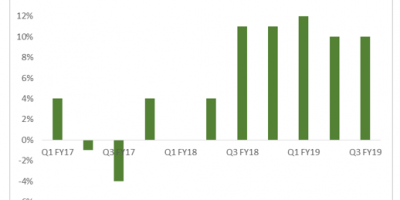
The Investment Association (IA) is facing renewed criticism of its ‘counter-productive’ yield criteria for funds in the UK equity income sector, following news the £8.3bn CF Woodford Equity Income fund and other vehicles are at risk of being removed from the peer group.
In statistics updated by the IA last week, Neil Woodford’s (pictured) Equity Income fund, Jupiter’s £1.8bn Income Trust, SWIP’s £1.4bn Multi-Manager UK Equity Income fund and the £57m F&C UK Equity Income fund were all flagged as having a yield lower than the sector requirement – 110% of the FTSE All Share – on a one-year rolling basis.
If the managers fail to boost income payments from these levels over a three-year rolling period, they face being removed from the sector, as has been the case for several high profile funds over the years: Invesco Perpetual’s £11.8bn High Income and £6bn Income,Henderson’s £488m UK Equity Income & Growth and Schroders’ £1.4bn Income funds all currently sit in the UK All Companies sector after failing to meet the yield target previously.
Commenting on the issue, Woodford IM said it was happy with the Equity Income fund and has no plans to change its approach.
A spokesperson said: “We said we wanted to deliver a 4p income target per unit in the full 2015 calendar year, which we achieved, and provide long-term and sustainable income growth. This income forms an integral part of an attractive and positive long-term total return.”
We would prefer the yield calculation was based on the income provided for each £1 invested at the start of each period, which gets around the problem.
Growing dividends
The IA has faced mounting criticism over sector criteria since these first funds were removed, and has so far failed to make amendments. But following news Woodford – who runs the sector’s largest fund by some margin – is facing being expelled, industry commentators have renewed calls for changes to be made.
Peter Lowman, CIO at Investment Quorum, said: “We think it is an archaic policy. As interest rates are benign, and are looking to stay that way until well after the Brexit debate, dividend growth is very important.
“There is a high concentration of the dividend payers within the FTSE, so to yield 110% of the All Share is a tough base to start with; it is something that needs to be addressed in this current environment.”
[Source:- Investmentweek]


